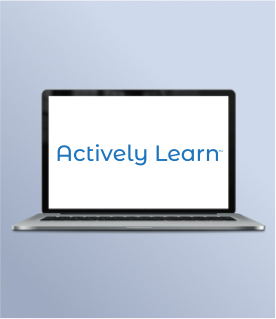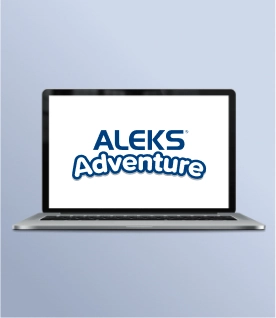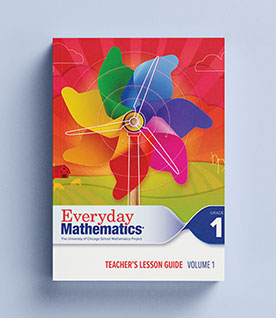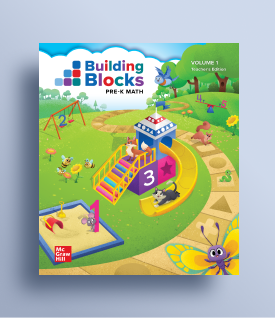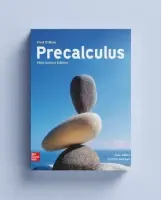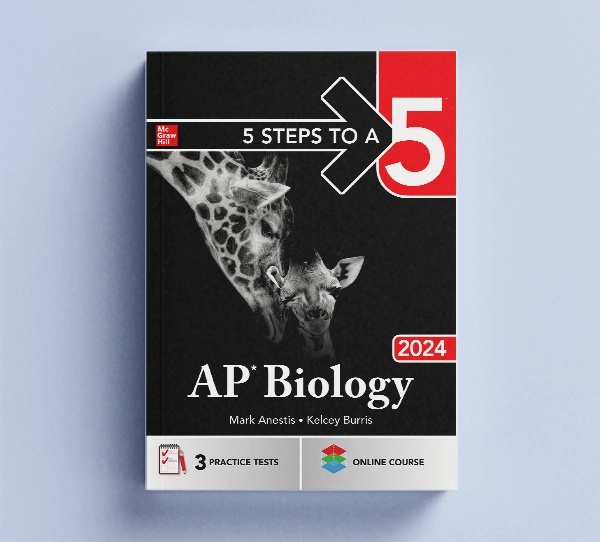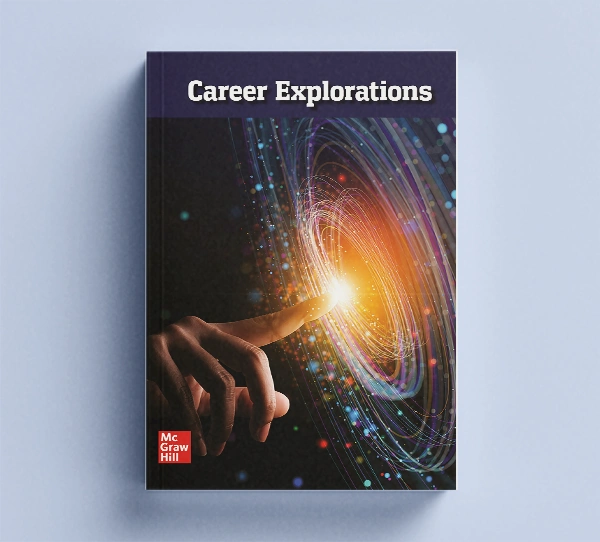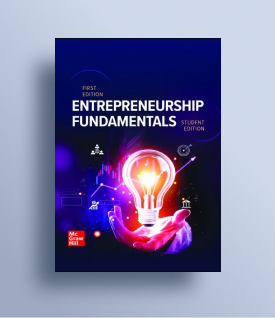My Account Details
Program Foundation
Deeply rooted in years of research and best pedagogical practices, Inspire Science has been designed to maximize student learning as they explore the phenomenal world around them. The NGSS-aligned curriculum ensures all students receive a comprehensive science education all while meeting rigorous state and national standards.
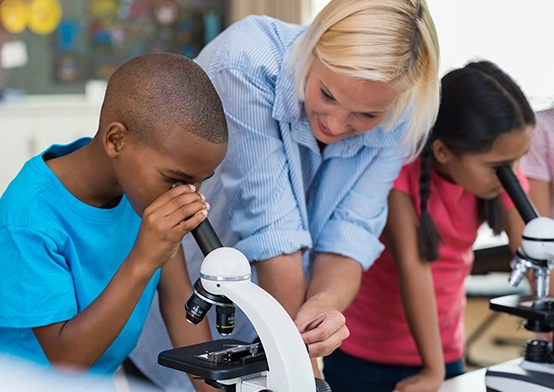
Pedagogy
Built around the Next Generation Science Standards (NGSS), Inspire Science empowers students to explore our world’s natural phenomena in exciting, hands-on ways. Guided by the power of inquiry, the program works to foster deep conceptual understanding by prioritizing depth over breadth and performance over testing knowledge.
Each student’s journey through Inspire Science is guided by the 5Es and fueled by phenomena to provoke critical thinking and develop creative problem-solving skills.
Engage
The Engage phase introduces students to a real-world scientific phenomenon. As students make their initial observations and ask questions, they reveal the preconceptions that they bring to their learning.
Explore
The Explore phase launches students into a series of inquiry-based activities, allowing them to make claims and document their reasoning using the Claim, Evidence, Reasoning (CER) framework. This methodology helps level the playing field for learners by allowing them to access core science content via a shared, phenomena-based experience and invesigation.
Explain
During the Explain phase, students build upon their previous explorations by synthesizing an array of informational texts, supportive resources, and interactive activities. As students interact with the content, they practice close reading and research skills while deepening their understanding of core science topics.
Elaborate
The Elaborate phase takes an application-based to learning, allowing students to connect their knowledge to new situations and deveop a deeper understanding of the lesson concepts. This phase also introduces real-world STEM careers, prompting students to consider new potentional career paths.
Evaluate
In the Evaluate phase, students revisit the phenomenon at hand and demonstrate their understanding by answering essential and phenomena-based questions and completing a final performance task. Teachers can then guage student progress toward achieving lesson objectives, with the option to provide remediation suggestions if additional help is needed.
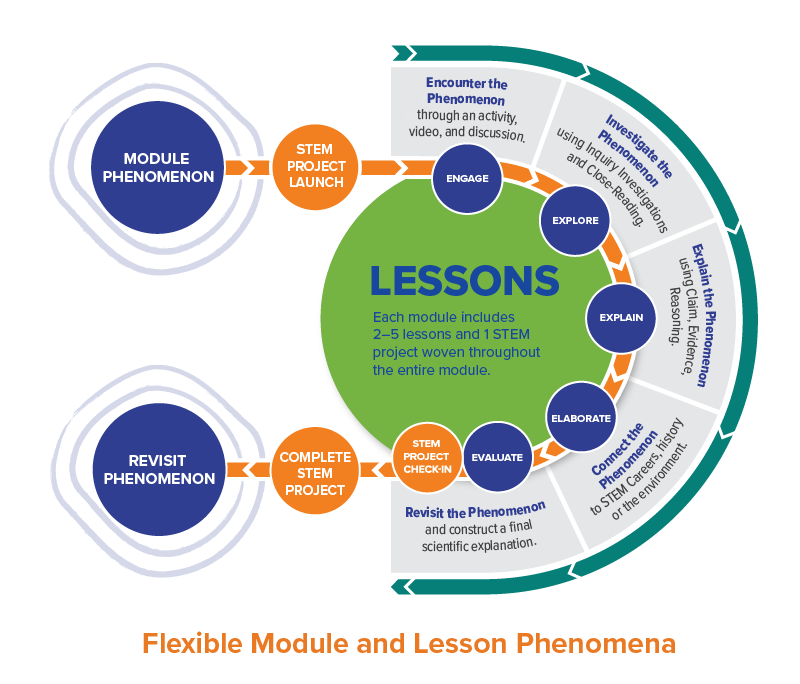
Students build long-lasting knowledge and skills when they experience science and engineering in meaningful, real-world, application-oriented ways. In Inspire Science, phenomena act as the centerpiece of each module and lesson to engage students and inspire them to investigate key science and engineering concepts. As students investigate each lesson-level phenomenon, they will gather pieces of the puzzle to help solve and explain the module-level phenomenon.
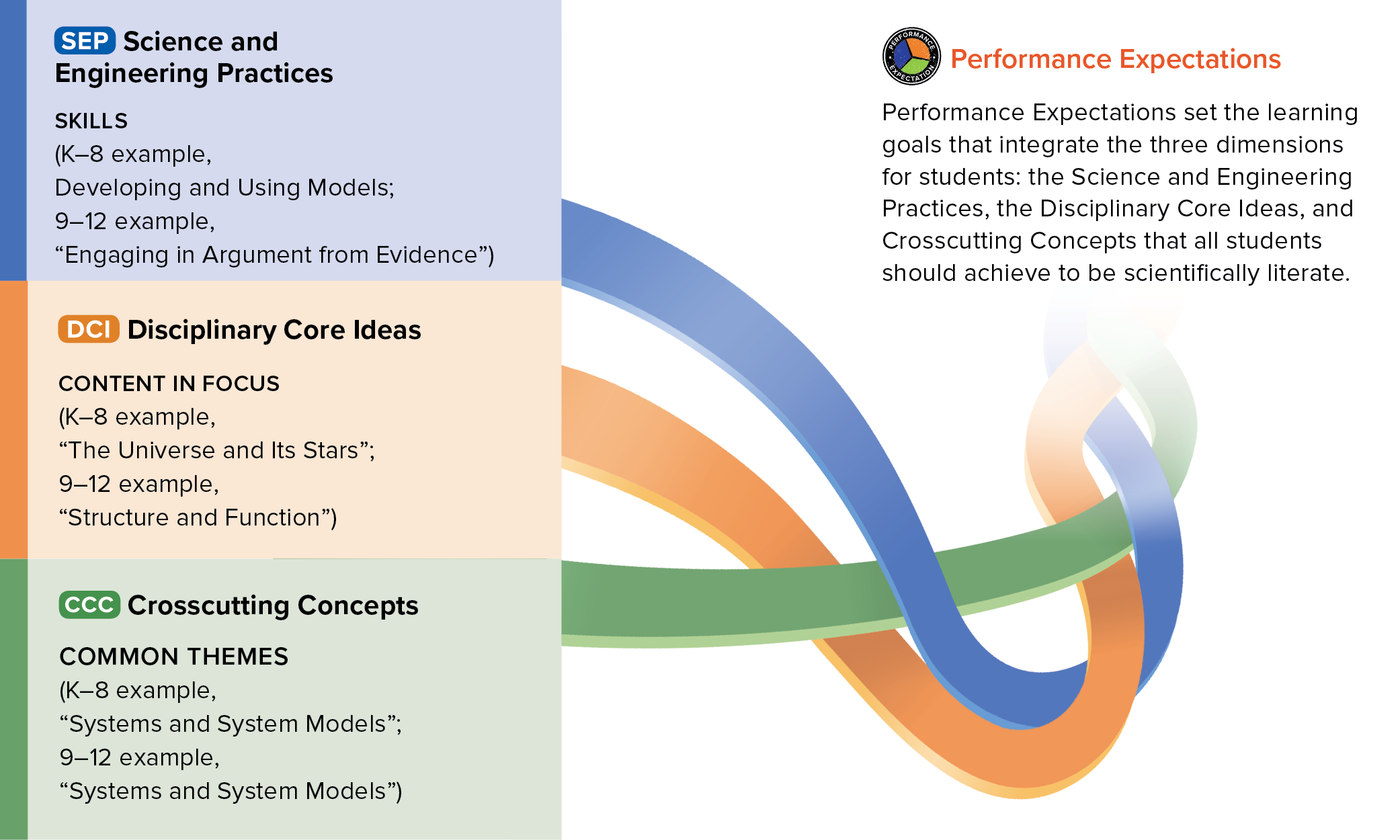
Three-Dimensional Learning
The three-dimensional learning framework of Inspire Science delivers an application-oriented approach that provides students with holistic science skills. Students achieve proficiency with the Performance Expectations by working with the Science and Engineering Practices, Disciplinary Core Ideas, and Crosscutting Concepts in tandem to make sense of phenomena and design solutions to real-world problems.
Science and Engineering Practices
Science and Engineering Practices guide how you ask questions, define problems, plans and carry out investigations, analyze and interpret your findings, develop and use models, use mathematics and computational thinking, develop explanations and solutions based on evidence, and critique and communicate ideas.
Disciplinary Core Ideas
Disciplinary Core Ideas bring into focus the concepts and organizing principles important across science and engineering.
Crosscutting Concepts
Crosscutting Concepts are big ideas that apply to many areas of science and engineering. They help you to think scientifically while you apply the science and engineering practices and link the core ideas you learn during the course.
Inspire Science incorporates research-based Universal Design Learning Principles to provide educational practices that support multiple means of engagement, representation, action, and expression to ensure that all students have access to rigorous curriculum. The Teacher’s Edition and leveled informational text—such as Leveled Readers and INVESTIGATOR articles—feature robust differentiation support and practical strategies. Leveled texts align with the Lexile ranges of the CCSS.
We recognize that no two students are alike. Using revolutionary technology, LearnSmart for Inspire Science 6–12 unlocks adaptive learning specific to each student’s needs. This sophisticated software works to…
- Make every minute count by highlighting the most impactful concepts each individual still needs to learn. This ensures that any time spent studying is as productive as possible.
- Maximize the power of instruction with actionable insights into student and class understanding.
- Promote content retention by rotating mastered concepts in and out of the learning cycle as new ones enter until all concepts have been completed.
NGSS and the Research Foundations of Inspire Science
Development of each version of Inspire Science begins with a research phase during which the authors review the most current research available related to how students learn. These white papers summarize some of the research behind the program.

White Papers
Advisors
Inspire Science draws on the expertise and innovations of almost a dozen well-respected scholars, including:
Page Keeley
Page Keeley, M.Ed., is a nationally renowned expert on science formative assessment and teaching for conceptual change. She is the author of several award-winning books and journal articles on uncovering student thinking using formative assessment probes and techniques. She was the science program director at the Maine Mathematics and Science Alliance for 16 years and a past president of the National Science Teachers Association.
Dinah Zike
Dinah Zike, M.Ed., is an internationally renowned author, education consultant, and lecturer. She has invented hundreds of educational manipulatives (graphic organizers) that are used internationally by educators, trainers, and consultants. Dinah has developed over 200 supplemental educational books and materials used in homes and classrooms around the world. Her Foldables® are an exclusive feature of McGraw Hill science programs.
Joyce Tugel
Joyce Tugel is a K–12 STEM education specialist. Her work is primarily focused on teacher leadership, professional development in the areas of science curriculum, instruction and formative assessment, STEM integration, and implementation of the NGSS.
Chris Anderson
Chris Anderson is an integrative STEM (iSTEM) coach, grant writer, adjunct, and educational consultant. His work in over 70 school districts over the last four years has yielded best practices for transitioning and sustaining K–12 STEM programming in Pennsylvania, New York, Georgia, and his home state of New Jersey. Chris spent his first 10 years in education as a K–12 technology and engineering teacher. By 2005, he was one of the first teachers in the country to incorporate a 3D plastic printer and laser cutter into his middle school curriculum. Chris was recognized by General Motors Corporation and Discovery Channel’s Education Division for leadership in sustainability education. Chris is an adjunct at The College of New Jersey and leads a consulting business for the region’s earliest adopters of NGSS.
Cheryl Simmers
Prior to becoming principal of Rowanty Technical Center, Cheryl Simmers taught math at Sussex Central High School, her alma mater, and high school engineering and math at the Appomattox Regional Governor’s School in Petersburg. She holds a B.S. in industrial engineering and operations research and an M.S. in industrial and systems engineering. Cheryl participates in panels and workshops to bring engineering into K–12 education and has been a featured author and co-author for three high school engineering textbooks.
Emily Miller
Emily Miller is a writer for the Diversity and Equity and Elementary writing teams of the NGSS. She taught elementary and middle school science as an ESL and bilingual resource teacher at a Title I school for almost 20 years. Emily worked with World-Class Instructional Design and Assessment (WIDA) to expand and amplify can-do descriptors for English language proficiency benchmarks. She also helped to develop the NGSS-aligned discourse tools for ELLs as a researcher on an NSF grant with the Wisconsin Center for Educational Research.
Dr. Jay Hackett
Dr. Jay Hackett, a science educator and veteran McGraw Hill elementary school science author, is an emeritus professor of earth sciences at the University of Northern Colorado. As a professor on loan to the National Research Council, he assisted in the development of “Inquiry and the National Science Education Standards: A Guide for Teaching and Learning.” He is a past recipient of the William R. Ross Science Award and an Honored Alumnus of the University of Northern Colorado.
Dr. Richard Moyer
Dr. Richard Moyer, award-winning educator and science author, is an emeritus professor of science education and natural sciences at the University of Michigan-Dearborn and has been an elementary and middle school science author for McGraw Hill for over 32 years. He is the co-author of “Everyday Engineering: Putting the E in STEM Teaching and Learning,” a book that looks at the engineering of the simple devices we use daily. He and Dr. Hackett are co-authors of the college science methods book, “Teaching Science as Investigations.”
Dr. Jo Anne Vasquez
Dr. Jo Anne Vasquez has been a classroom teacher, a district science specialist, an adjunct professor, the VP and program director for STEM Initiatives at Helios Education Foundation, and currently is a STEM education consultant. She is the past president of the National Science Teachers Association and the National Science Leadership Association and is the only K–12 teacher ever to be appointed to the National Science Board. She received the 2007 New York Academy of Science’s Willard Jacobson Award for major contribution to the field of science education and was the 2004 NALEO (National Association of Latino Elected and Appointed Officials) honoree for her contributions to improving education.
Dr. Dorothy J.T. Terman
Dr. Dorothy J.T. Terman is a veteran McGraw Hill author and currently serves as a consultant in inquiry-based science curriculum implementation. For 21 years, Dorothy was the science coordinator for California’s Irvine Unified school district. She has expertise in gender equity in education, having worked with astronaut Sally Ride in Dr. Ride’s efforts to encourage girls’ interest in science and engineering. Dorothy has received many awards, including the Ohaus Award from the National Science Teachers Association for Innovation in Elementary Science Education.




